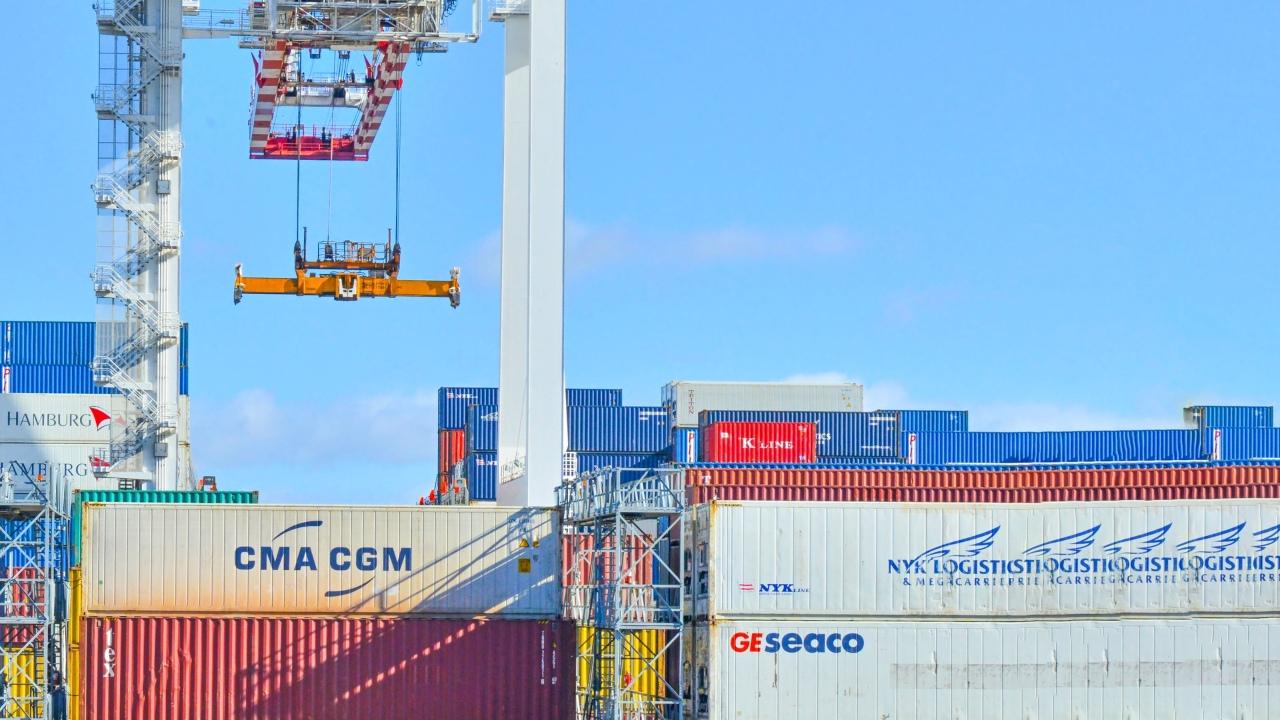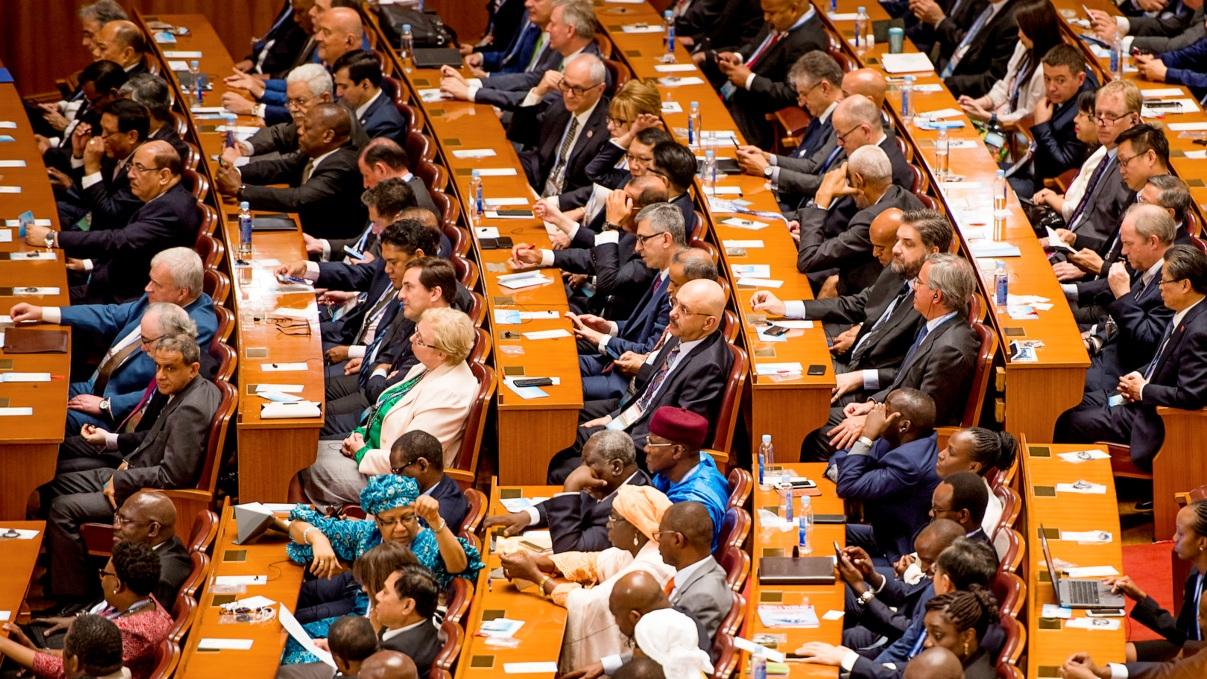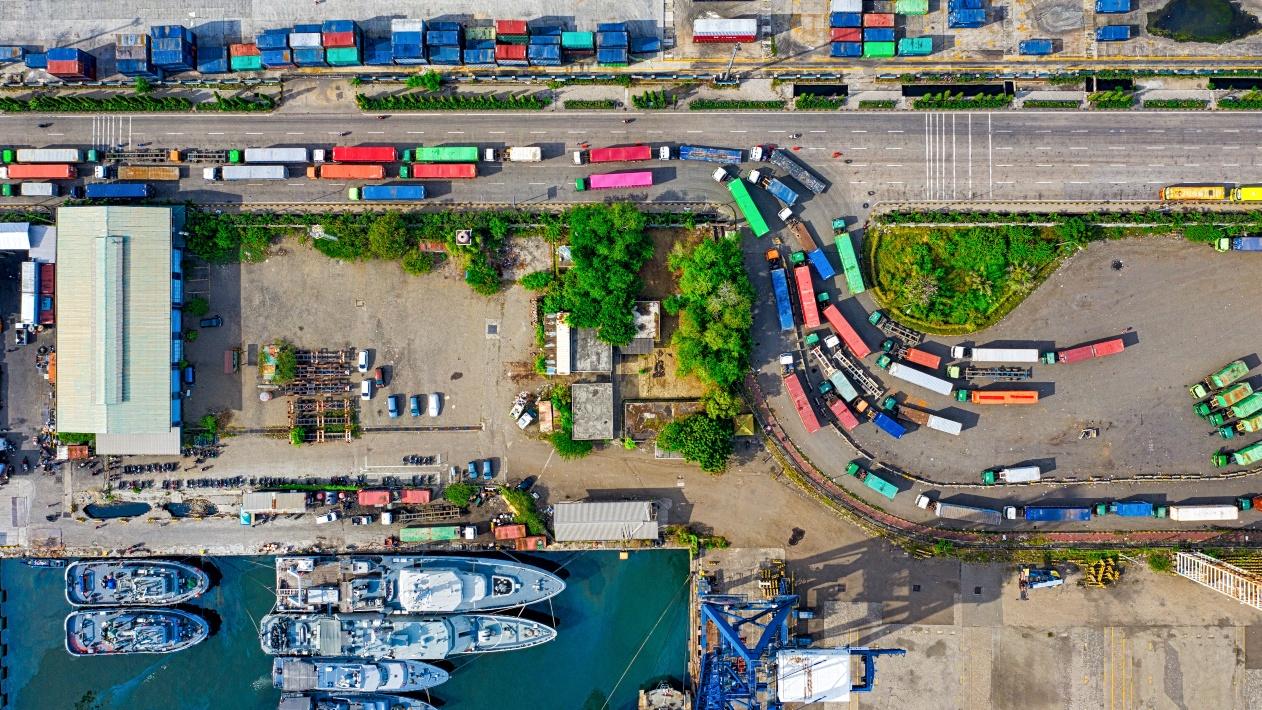As states implement the African Continental Free Trade Area, efforts must be made to ensure the agreement progresses gender equality considerations and drives women’s economic empowerment. Gender mainstreaming in the AfCFTA should then take a “whole agreement approach”, incorporating civil society and the private sector in national, regional and continental consultations.
This post is part of the African trade policy series, hosted by the LSE Firoz Lalji Institute for Africa.
The signature of the agreement establishing the African Continental Free Trade Area (AfCFTA) on 21 March 2018 marked a historic milestone for economic integration in Africa. Built and implemented through various phases of negotiations, the AfCFTA Agreement in Phase I has agreed protocols on Trade in Goods, Trade in Services and Rules and Procedures on the Settlement of Disputes, while negotiations on Phase II Protocols should be concluded by September 2022. These include protocols on Intellectual Property Rights, Competition Policy, Investment and Digital Trade, as well as a protocol on Women and Youth in Trade.
Crucial to the single market created under the AfCFTA are new trade and economic opportunities for women, including in productive sectors where women are disproportionately employed, such as agriculture, manufacturing (clothing and textiles) and services. Notwithstanding the promise, gains will not be automatic. This is especially the case for women who confront a range of structural inequalities, with implications for their participation in economic activities in general and in the AfCFTA, in particular. Pervasive inequalities further limit women’s ability to respond to external shocks such as climate change and pandemics.
As state parties turn to implement the AfCFTA Agreement, deliberate efforts are necessary to ensure an inclusive approach to the agreement’s implementation. This requires considering opportunities for more and better jobs for women, addressing structural inequalities and fast-tracking climate action. Achieving this objective in the midst of a health, economic and care crisis caused by the COVID-19 pandemic that has disproportionately affected women requires an approach that mainstreams gender throughout the AfCFTA.
Addressing systematic and structural barriers to women’s equality for a whole agreement approach
Achieving an approach to gender mainstreaming in the AfCFTA that covers the whole agreement cannot be achieved in the absence of a comprehensive understanding of the root causes of structural inequality and gender-distinct trade barriers. Conceiving how the latter prevent women from participating in trade, business and economic activities is essential. As a powerful force, women in Africa are creating solutions to intractable challenges through a combination of their skills, talents and innovation, while pioneering new avenues to wealth creation. In parallel, women are confronted with systemic and structural barriers to equality – from restrictive socio-cultural norms, unpaid care work and discriminatory laws in many places – to prevailing inequalities in labour participation, health, education and political representation.
Gender inequalities also result in women having to bear the brunt of disaster impacts. Disproportionately employed in subsistence agriculture, and as small-scale producers, women are more dependent on natural resources and play a central role in managing their environment and sustaining livelihoods, including through agricultural production as a key component of food security. Notwithstanding this role, women often lack equitable access to productive inputs and are under-represented in terms of power and decision-making structures. This leaves them with limited capacity for coping with and adapting to the impact of climate-related disasters and environmental degradation.
While the AfCFTA will fundamentally alter Africa’s production and trade landscape, environmental and climate considerations have not featured prominently in its design. Yet, the nexus between climate change and gender inequality, with its increasing threat for undermining inclusive socio-economic development in Africa, underscores the economic urgency of fast-tracking climate action, including through the AfCFTA. Addressing systematic inequalities and related gender-specific trade barriers through a “whole agreement approach” to mainstreaming gender in the AfCFTA can actively promote the equal participation and empowerment of women in resilient and green intra-African trade.
Actions for advancing a whole agreement approach to mainstreaming gender in the AfCFTA
A whole agreement approach to gender mainstreaming in the AfCFTA can achieve more beneficial and equal outcomes for all. But what does this approach entail and how should it be operationalised? Overall, a whole agreement approach may be best achieved by applying a gender lens across all AfCFTA protocols and their associated annexes and appendices that form an integral part of the AfCFTA Agreement.
In the context of Phase I implementation of the Agreement, this requires examining how women work, trade and own businesses at the national level through a gender lens. This should also be applied to sectors that are affected most by trade in goods, including agriculture and manufacturing and trade in services. Particular attention will need to be given to new opportunities for women’s economic empowerment, as well as to systematic inequalities and structural constraints that impact women in their different economic roles. Such an approach will involve examining how women engage in export trade in goods and services. Key insights and findings emerging from this process can inform the design of gender-responsive AfCFTA policy reforms and complementary measures that remove structural barriers and create new opportunities for women to access higher-skilled jobs and upgrade into higher-productivity activities in the AfCFTA.
In agriculture, strengthening and enforcing laws and policies that address the gender gap in agricultural productivity would support women’s economic participation in this critical sector. Complementary capacity-building measures that assist women small-scale producers to competitively produce crops with forward linkages to value-added sectors is also important. This should be implemented alongside targeted interventions that assist small-scale farmers in the production of high-value agricultural commodities for niche export markets.
The shift to AfCFTA implementation also presents a unique opportunity to advance a holistic approach to industrial policy that addresses issues of gendered segregation and the pervasive gender wage gap in manufacturing. Retraining and upskilling workers through targeted strategies is particularly important for enabling women to adapt to the changing skill set required by expanding industries and more technical sectors. Likewise, AfCFTA liberalisation of trade in services provides considerable opportunities for AfCFTA state parties to involve women in the preparation of schedules of specific commitments in the five priority services sectors, and to make commitments in those sectors where women are most active, including in tourism.
It is additionally worth underscoring the importance of a trade facilitation agenda that is gender-responsive. Notably, an agenda that creates efficient and transparent customs processes, reduces clearance times and trade costs and increases the involvement of women in AfCFTA Trade Facilitation National Committees can act as a catalyst for women-led businesses in intra-African trade. Digital trade facilitation measures, such as single windows, electronic certificates of origin and automated processing of trade declarations are particularly important for smaller women-led businesses. Similarly, women small-scale and informal cross-border traders can benefit from a gender-responsive AfCFTA Simplified Trade Regime that lowers the costs of formal import and export procedures and supports their participation in more formal trading arrangements created through the AfCFTA.
Like Phase I, ensuring a whole agreement approach to gender mainstreaming in Phase II implementation of the AfCFTA Agreement is needed. This should extend beyond a dedicated Protocol on Women and Youth in Trade to applying a gender lens to the Phase II negotiations. This would inform the drafting of explicit gender-related provisions that can serve as entry points for promoting women’s economic empowerment objectives across all AfCFTA Phase II Protocols. Gender-related provisions in the Protocol on Intellectual Property Rights, for example, which protect and recognise women’s contribution to traditional knowledge and local innovation, could extend the benefits of the intellectual property system to women and women-led businesses who experience the lack of knowledge of intellectual property protection as a distinct barrier to trade. Targeted areas of cooperation for women could include capacity building, knowledge generation and skills enhancement on intellectual property protections, as well as related cooperation on information centres at borders. These are places where women can obtain advice on intellectual property rights.
Similarly, integrating gender-related provisions into the AfCFTA Protocol on Competition Policy could help reduce pre-existing gender inequalities. Provisions that encourage capacity building for women-led businesses on how to challenge anticompetitive conduct through competition authorities, and other formal systems, should be included, as well as promoting public-private partnerships that support the participation of local and regional women suppliers in value chains. Gender-related provisions as part of negotiated outcomes for the AfCFTA Protocol on Investment could range from cooperation on the promotion of skills and technology transfer and linkages to requiring AfCFTA state parties to advance corporate social responsibility and develop responsible business practices that promote gender equality. Women-led micro, small and medium-sized enterprises would be particularly positively affected.
The treatment of investors could also be addressed, for example, through an explicit provision that prohibits gender-based discrimination against investors. In the case of a Protocol on Digital Trade, gender-related provisions could focus on various areas of cooperation to close the gender digital divide, including through increasing women and girls’ access to digital skills and literacy initiatives, as well as through provisions that recognise digital harassment, and other threats that prevent women from accessing the internet. Gender-related provisions centred on the sharing of country experiences in the design and implementation of approaches, which can help women-owned businesses increase their exports through digital trade and e-commerce platforms, could also be considered.
To create such a whole agreement approach, a participatory process is needed that builds strong alliances with civil society and the private sector in national, regional and continental consultations and decision-making. Integral to these processes is the need to understand various areas for empowering women in formal and informal employment and in multiple economic roles, as opposed to focusing exclusively on women as entrepreneurs. Gender training for trade negotiators to create a stronger understanding of the links between trade and gender should consequently be encouraged, alongside the increased participation and representation of women and gender ministry representatives in national AfCFTA agenda-setting and negotiating delegations. Dedicated efforts will further be required to address the absence of gender and trade data and statistics. Gender-disaggregated data is particularly important for building the evidence base for more informed policies that, in particular, address the nexus between the AfCFTA, gender and climate change.
This blog is a summary of a policy brief written by Nadira Bayat and published by the Friedrich-Ebert-Stiftung (FES) Geneva office.
Photo: Cameroon – Day in the life of Christine Banlog, market woman. Credit: UN Women/Ryan Brown. Licensed under CC BY-NC-ND 2.0.





